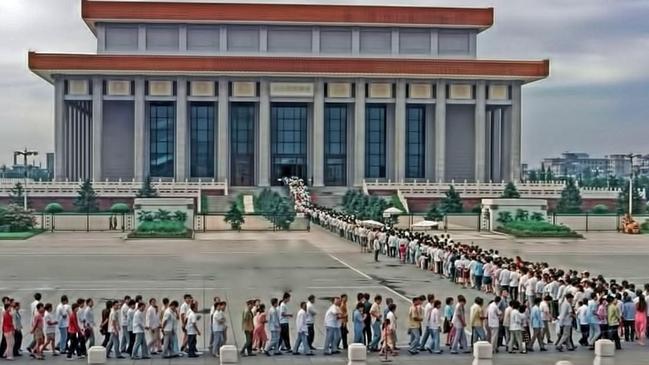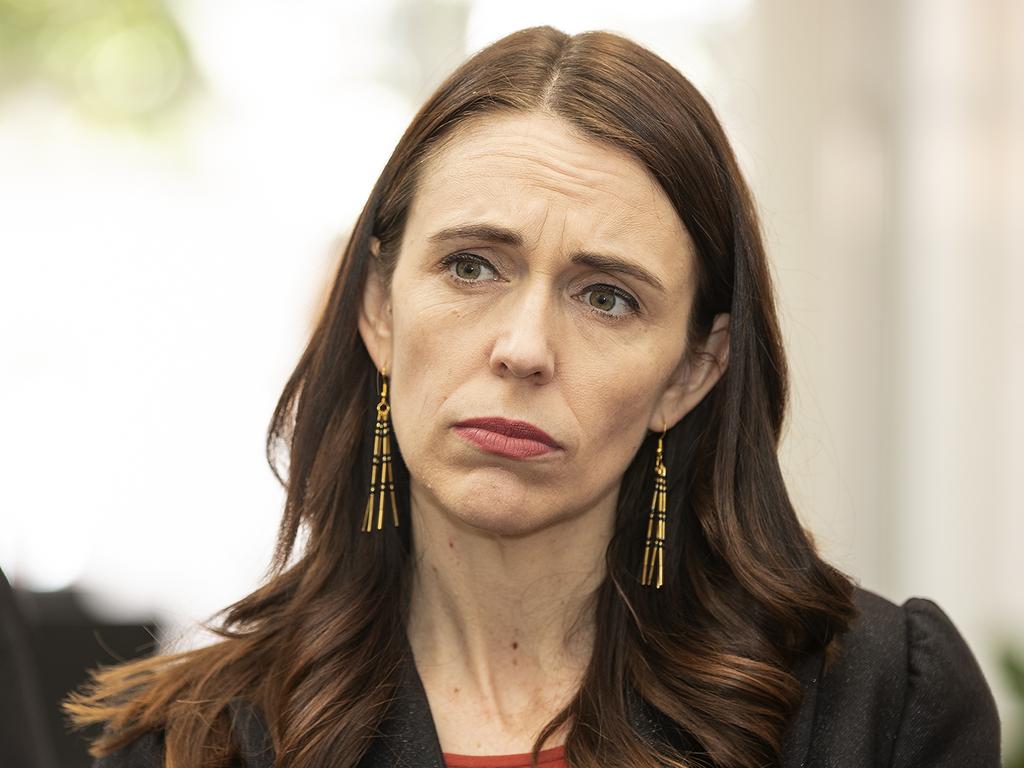
One of the most important was Gough Whitlam’s visit to China in 1971 which paved the way for Australia’s recognition of “Communist” China after his election as Prime Minister the following year.
In his latest book, Beyond the News Room, Politics, Power and People, political journalist Geoff Kitney recalls the excitement of the visit to China in November 1978 by then deputy Prime Minister Doug Anthony, leading a delegation of the chief executives of major Australian companies including BHP, CRA and Dunlop.
He describes Anthony and his wife Margo leading a gaggle of businesspeople and journalists through Mao’s tomb in Tiananmen Square.
“It was a strange procession that day, capitalists paying homage to a Communist hero.”
They were visits that were part of the opening up of China to the rest of the world which, over time, have seen a $200b trading relationship between Australia and China the breadth and depth of which Australia has never seen in its history — until recently.
As deputy PM and leader of what is now known as the National Party, Anthony did particularly well for his own constituency, allowing them to sell beef, wine, wool, dairy, barley and other food products at record levels to China, until this year.
The news this week of the hasty and scrambled departure of two Australian journalists from China, after midnight visits from state security police which included threats of exit bans, marks another turning point in the relationship — a closing of a door, the end of a chapter, and an end to whatever hope that the increasingly difficult if not bitter political relationship would somehow not spill over into personal ties.
And the end of an age of innocence by Australian journalists operating in China (which included me in 2018 and 2019) that this sort of thing would not happen to them in modern China.
I still remember the apprehension in 1978 I felt dragging my bag across a wooden bridge from Hong Kong’s Lo Wu station, making my first visit to China, walking towards the unknown Middle Kingdom under the watchful eye of Chinese soldiers bearing guns, vividly recalling the pictures of Australian Francis James stumbling across that same bridge a few years before after his release from a Chinese prison.
Ties between Australia and Beijing continued to get better with the opening up of China, which took off after that time.
But that has all changed with the arrest of Chinese Australian journalist Cheng Lei and this week’s near detention of the two journalists.
It’s not that the journalists in China were cheerleaders for the country, but the commitment of them and their employers underlined the importance of the China story to Australia.
The decoupling
Without personal ties and goodwill, or at least a level of trust which will allow Australians to freely visit China without fear in future, trade and business will be very difficult.
Until this week, the word “decoupling” was used to describe the angry trade war between China and the US under President Trump.
But from this week, the leaders of Australian companies doing business in China will need to reassess the risks of their dependence on the market as well as the potential security of their staff in China or planning to visit when COVID travel restrictions end.
If 2019 was a high water mark of Australia-China trade, 2020 may be the year when Australia may have to come to terms with what “decoupling” or at least reducing their dependence on the Chinese market means to them.
Political visits between leaders of Australia and China have become a thing of the past.
It is now exactly four years since the last Australian PM visited China, in September 2016 when Malcolm Turnbull attended the G20 meeting in Hangzhou, the capital of the Zhejiang province, which plays host to some of the most entrepreneurial companies in China including Alibaba.
Business has largely continued on despite worsening political ties.
But this week some of the most positive business leaders exporting to China are admitting their concerns about deteriorating political relations, warning that it is “no longer business as usual” following recent events.
“Australian business is concerned about the future of trade with China,” said David Olsson, the president of the Australian China Chamber of Commerce and China practice consultant for law firm King & Wood Mallesons.
He said China would remain Australia’s most important trading partner “for the foreseeable future” but was “no longer business as usual. The game has changed too much.”
He said exporters needed to diversify their markets, “develop new supply chains and manage risks and uncertainties arising from growing geopolitical rivalry and increased trade tensions”.
But he said that “despite the prevailing negativism”, Australia’s complementary economic engagement with China “would play a major role in business getting back on its feet as it did with the global financial crisis of 2009”.
He said it was important that there was more open communication between Australia and China. “In these times of tension in the bilateral relationship, open communication and the sharing of ideas has never been more important.”
But trust and communication between Australia and China have been dealt a major blow this week with events which will go down as a dark day in the history of the relationship.
Olsson’s right about one thing, it’s no longer business as usual with China. The game has changed too much. Both sides will be worse off for it.







In the history of Australian relations with China there have been some key turning points.